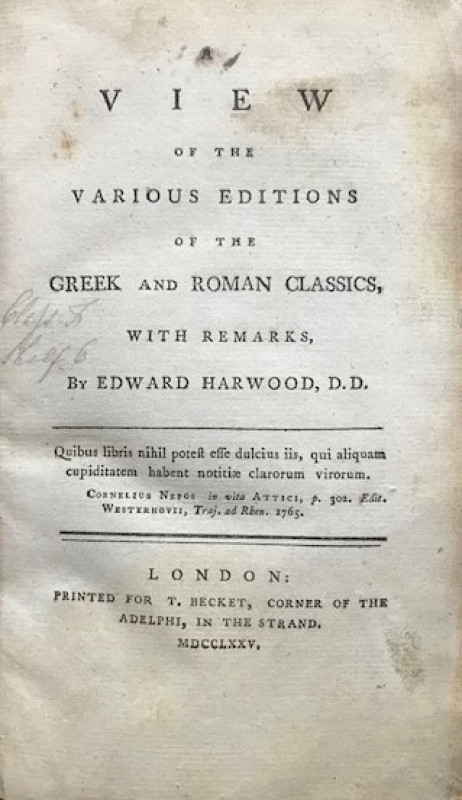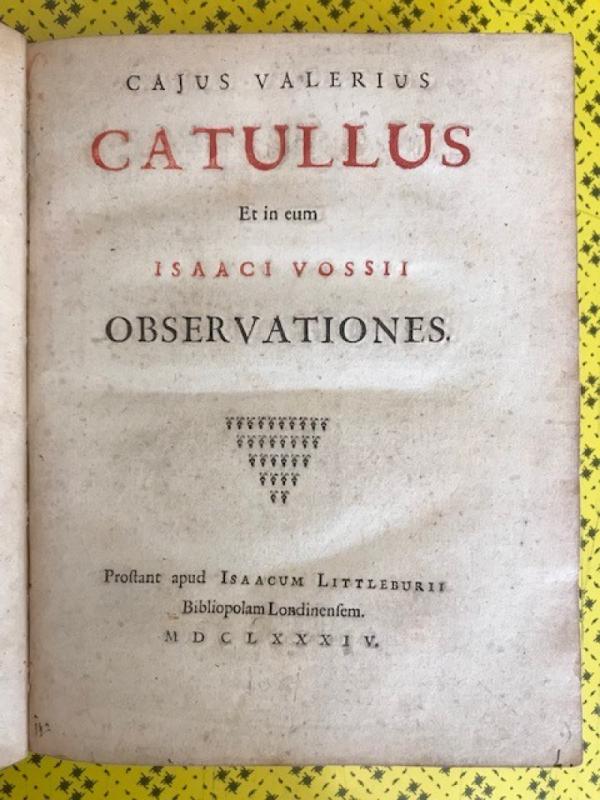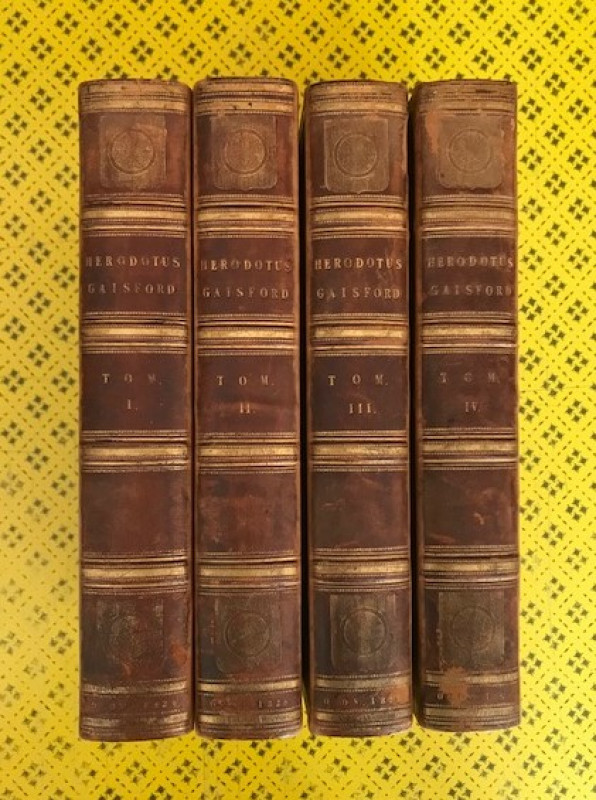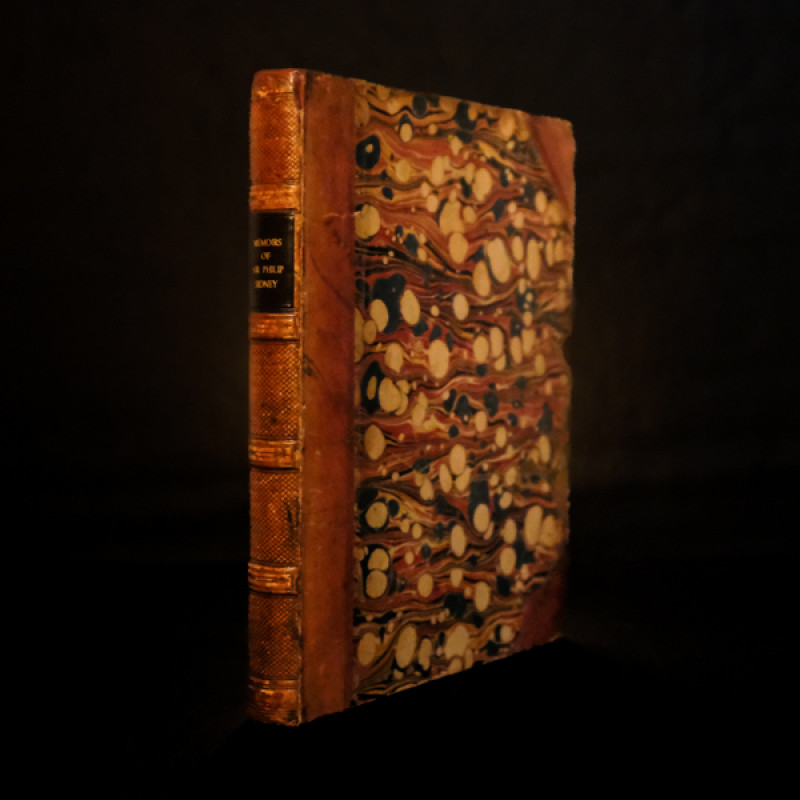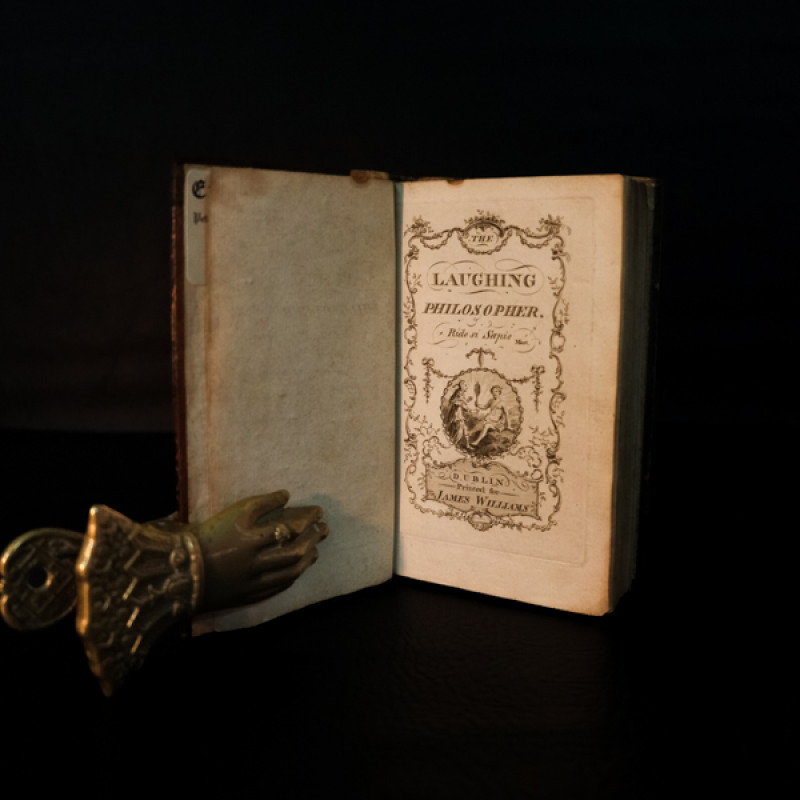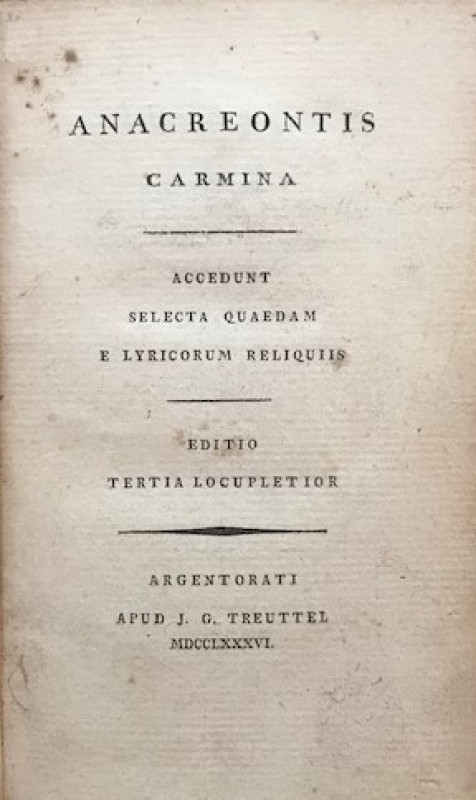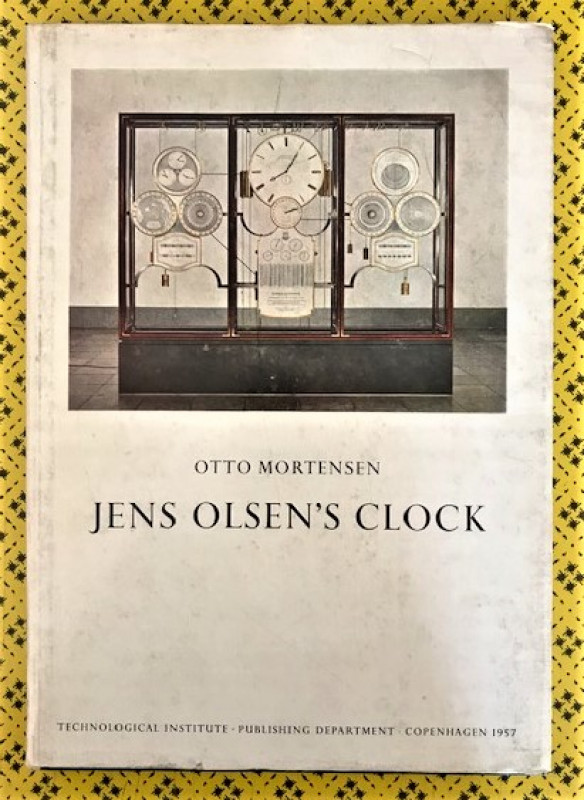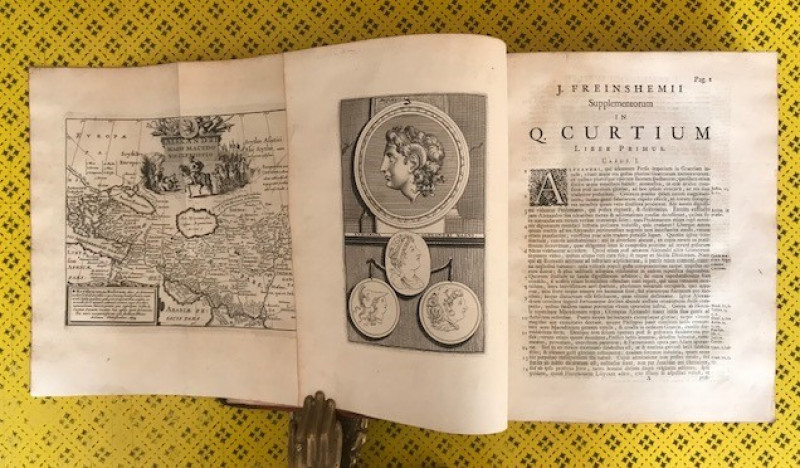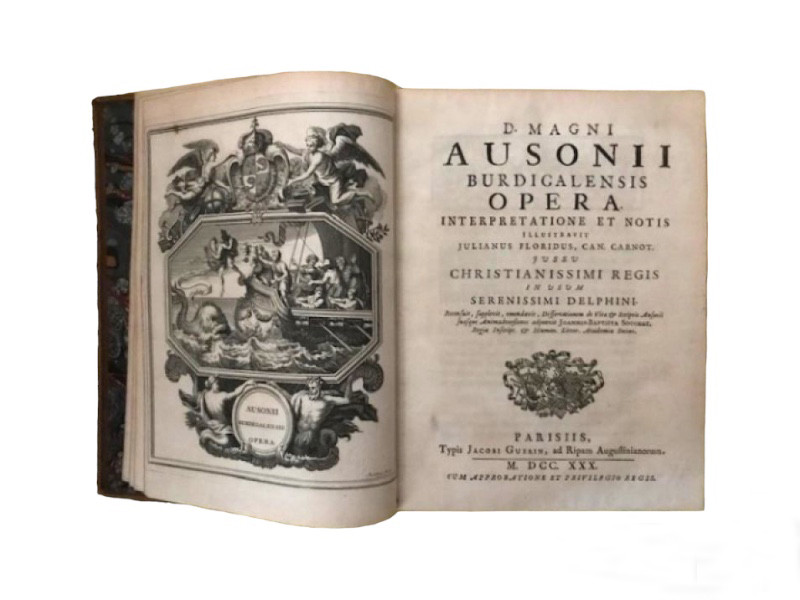Institutiones Grammaticae Anglo-Saxonicae et Moeso-Gothicae […].
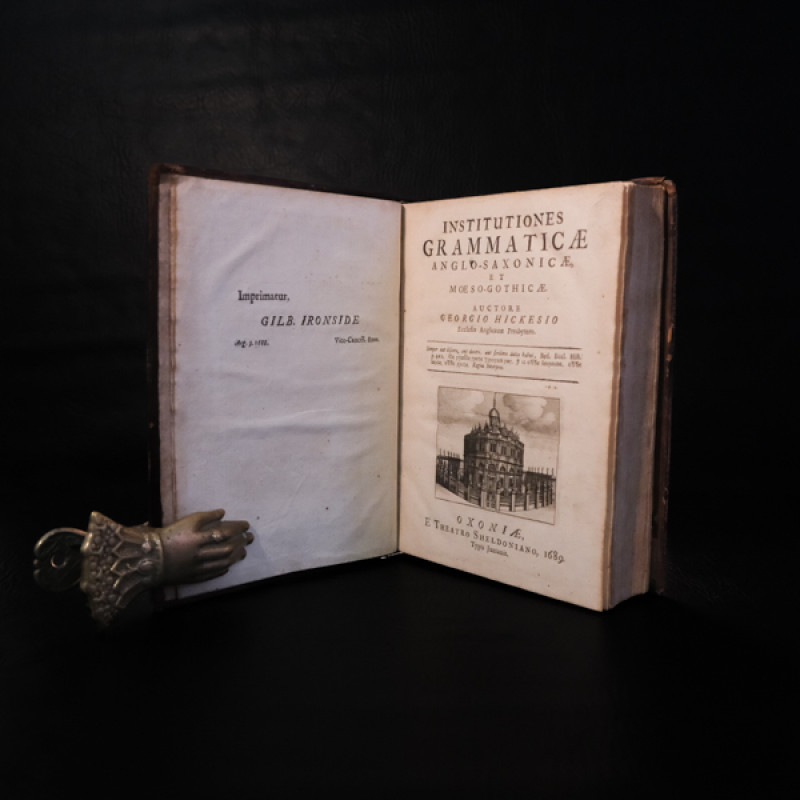
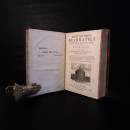
Book Description
Small 4to., pp.[xxviii], 114, [vi], 182, [xxxviii]. With initial imprimatur leaf. Engraving of Sheldonian Theatre to title-page, woodcut initials. ‘Recentissima antiquissimæ linguæ septentrionalis incunabula, id est, Grammaticæ Islandicæ rudimenta. Per Runolphum Jonam Islandum’ has its own title-page dated 1688, separate pagination but continuous register. Half-title to ‘Edwardi Bernardi Etymologicon Britannicum’ after the errata on p.182. Final leaf blank. A little ink to bottom margin, pp.133-145, occasional light spotting, very good. Contemporary dark brown calf lightly speckled, raised bands, replacement title label, blind-tooled border with small corner tools to boards. Neat repairs to head and tail of spine and joints, lightly scuffed, corners a little bumped, very good.
To front paste-down, armorial bookplate of ‘Robert Shafto Esq. of Benwell’. Benwell Towers was bequeathed in 1607 by Robert Shafto, Sheriff of Newcastle, to his son Robert Shafto, High Sheriff of Northumberland. This Robert was succeeded by three further Roberts, all of whom also served as High Sheriff. The last of these outlived his son, the estate was sold and his daughter Camilla married William Adair, whose bookplate can be found on the rear paste-down. They are also related to the politician Robert Shafto (1732-1797), famously known as 'Bobby Shafto'.
Dealer Notes
“For Hickes the affairs of English politics and religion came together with his historical and linguistic studies in the years leading up to the revolution of 1688–9. One of Fell's [John Fell, canon and dean of Christ Church, vice-chancellor of the Oxford University, and renovator of the university press] earlier cherished plans had been a publication of Junius's Old English–Latin dictionary, based on the Junius manuscripts which had come to the Bodleian in 1677 together with the Junius fount of type. The dictionary was to be accompanied by Marshall's Saxon grammar. After Marshall's death this task devolved upon William Nicolson, who had copied the Junius manuscripts with a view to publication but had left for Cumberland in 1681 (Nicolson's copy would come to the Bodleian in Fell's collection in 1686). According to Hickes's later friend, the Saxonist Edward Thwaites, Fell subsequently assigned the grammar to Hickes. At Worcester, where the cathedral library was rich in Saxon charters and where his association with William Hopkins was renewed, Hickes continued his philological studies and mastered Anglo-Saxon. Hickes now had access to the newly acquired Junius manuscripts at Oxford and was influenced by Junius's ideas about the history of the Germanic languages. With the encouragement and support of Arthur Charlett, delegate of Oxford University Press, and the scholar John Mill, Hickes's Old English grammar was printed (using Junius's type) and published at Oxford as Institutiones grammaticae Anglo-Saxonicae et Moeso-Goethicae (1689); yet not without Mill's drastic curtailment of Hickes's dedication to the by then suspended Archbishop Sancroft. In the following decade ecclesiastical and scholarly interests were combined and inextricably connected in Hickes's life in a manner characteristic both of antiquarian research in general and of Hickes's methods as one of its leading proponents. Hickes ‘belonged in a sense to an age earlier than that in which he lived, since his mind, encyclopedic in its range, refused to specialize and so entangled his learning with his life, that it is difficult to regard him solely as an historian or philologist, or solely as a divine’ (Douglas, 78).” (ODNB, Theodor Harmsen.)
ESTC: R8123.
ESTC: R8123.
Author
Hickes, George:
Date
1689
Publisher
Oxoniæ [Oxford]: Theatro Sheldoniano. Typis Junianis,
Friends of the PBFA
For £10 get free entry to our fairs, updates from the PBFA and more.
Please email info@pbfa.org for more information
